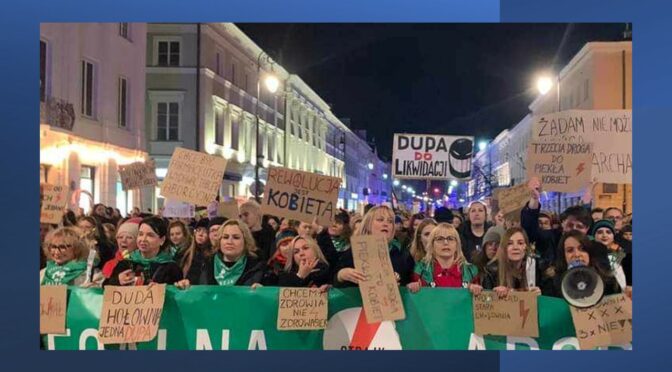Claiming Women’s Rights, Again and Again
An interdisciplinary workshop organized by CEFRES in cooperation with the Research group “Connaissance de l’Europe médiane” (GDR 3607, CNRS).
Location: CEFRES, Na Florenci 3, Prague 1 & online
Date: 11 October, 2024, 9:30 am–1:30 pm
Language: English, French
Organizers: Ioana Cîrstocea (CNRS, CESSP Paris et CEFRES) & Natasza Quelvennec (EHESS, CESSP Paris)
Partner Institutions: CEFRES, CNRS
Program
9.30-9.40: Introduction, Ioana Cîrstocea (CNRS, CESSP Paris et CEFRES Prague)
9.40-10.10: Hélène Martinelli (ENS in Lyon and CEFRES ) and Mateusz Chmurski (Sorbonne Université and CEFRES):
“Histoire d’anthologie : Devenir-sœur. Repères dans un siècle de féminisme polonais”
10.10-10.40: Chiara Bonfiglioli (Université Ca’Foscari in Venice, zoom):
“The Conference for the social activity of women and women-friendly politics at the local level in 1970s Yugoslavia: a micro-historical approach”
10.40-11.10: Discussion, Libuše Heczková (Faculty of Arts, Charles University in Prague)
11.10-11.30: Pause
11.30-12.00: Julia Laureau (Laboratory of Prospective Anthropology, Leuven University):
“Des manifestations de 2020/21 aux élections législatives de 2023. Stratégies, leadership et agentivité du mouvement des femmes en Pologne”
12.00-12.30: Hana Hašková (Institut of Sociology, Czech Academy of Sciences):
“Persistence of gender conservative values in Czech childcare policies”
12.30-13.00: Alexandra Ana (Departement of Sociology, University of Montreal, zoom):
“Les mouvements féministes en Roumanie : entre ONG-isation et résistance aux mouvements anti-genre”
13.00-13.30: Discussion, Natasza Quelvennec (EHESS, CESSP Paris)
Abstract
The so-called “Europe Médiane” has not been very visible in the landscape of “historical” feminisms, even though women participated in various political struggles, especially those related to nation building since the 19th century. It also appears to be both temporally and ideologically out of sync with the historiographies of 20th-century feminisms, which mobilized the concept of “waves” and privileged Western activists’ perspective. During the socialist regimes, this region witnessed exceptional forms of political experimentation in gender-equality matters. In the 1990s, the institutions and measures set up by the authoritarian regimes were denounced, dismantled and replaced by a massive import of “gender mainstreaming” watchwords driven by democratization and Europeanization programs.
More recently, Central and Eastern European societies have been shaken by “anti-gender” offensives carried out by “illiberal” governments, to which women opposed strong mobilizations. Stemming from very recent research, some of which is still in progress, the papers presented in this seminar session offer detailed case studies for analyzing gender regimes in Central and Eastern Europe. They take different disciplinary perspectives (literary studies, history, sociology, and political science) and deal with specific national contexts such as the 20th and 21st century Poland, the socialist Yugoslavia, or Romania and the Czech Republic in the latest decades. The speakers will address structural constraints and ways of contesting inequalities imagined by women in their historically situated practices, whether as activists, intellectuals, bureaucrats or experts.
The focus will be on local micro-policies that gave rise to socialist state’s “women-friendly” measures during the 1970s in Yugoslavia; the professionalized and internationalized activism of groups mobilized for defending women’s rights at the interstices of Romanian and European bureaucracies during the 2010s; the public stances and broad mobilizations of Polish feminists to denounce conservative policies and to impose changes to laws restricting their rights; and the participation of social scientists in negotiating normative projects to challenge unequal welfare configurations in the liberalized Czech state.

